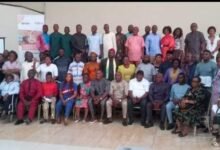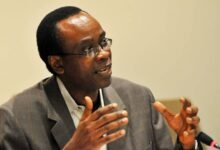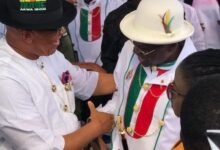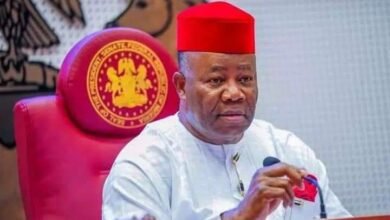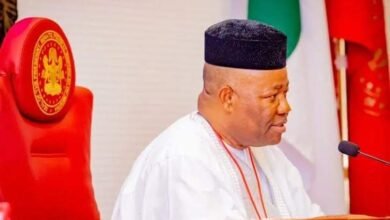
Northwest, Southwest top 93.5 million likely voters
• 49.5m men, 44.4m women, 37m youths registered
The Evangelist
January 12, 2023
The Northwest and the Southwest top the list of 93,469,008 million Nigerians eligible to vote in this year’s general election.
The list was released yesterday by the Independent National Electoral Commission (INEC) to the 18 registered political parties.
The new list shows that out of the 93,469,008 registered voters, the Northwest has the highest number of 22,255,562. The Southwest is second with 17,958,966.
Northcentral is third with 15,363,731 would-be voters; Southsouth fourth with 14,440,714 and Northeast: 12,542,429.
The Southeast has the least number of 10,907,606 eligible voters.
Out of the 93,469,008 total registered voters, 49.5 million, representing 52.5 percent, are males and 44.4m or 47.5 percent are females.
Youths in the age bracket of 18 to 34 are 37,060,399 or 39.65 percent of the total number. The number of persons between ages 35 and 49 (middle age) is 33,413,591 or 35.75 percent out the total number while the elderly (50 to 69) are 17,700,270 or 18.94 percent. Senior citizens (70+) are the least with 5,294,748 or 5.66 percent.
The list also shows that students constitute the highest bloc as 26,027,481 of them, representing 27.8 percent, are registered voters. They are followed by 14,742,554 farmers/fishermen (15.8 percent) and 13,006,939 housewives (13.9 percent).
A total of 12,457,997 business professionals, 7,998,658 traders, 5,283,549 civil servants, 4,967,464 artisans, 2,376,223 public servants and 5,283,549 others whose professions could not be determined are also on the list.
A state-by-state breakdown of the list shows Lagos in the Southwest topping the list with 7,060,195 registered voters. It is followed by Kano State in the Northwest which has 5,921,370 eligible voters. Ekiti State in the Southwest has the least number of voters with 502,251.
INEC Chairman Mahmood Yakubu, who presented the final list at the commission’s headquarters in Abuja, explained that 13, 868, 441 new Permanent Voter Cards (PVCs) were for new registrants, who sought transfer of their old PVCs and replacement were printed and despatched to states.
Yakubu also stressed that the polls would hold as scheduled beginning with those of the president and National Assembly on February 25.
He said: “You would recall that for the 2019 general election, Nigeria had a voter population of 84,004,084. After the cleaning up of the data from the last Continuous Voter Registration (CVR) exercise (June 2021 – July 2022), 9,518,188 new voters were added to the previous register resulting in the preliminary register of 93,522,272 which was presented to Nigerians for claims and objections as required by law.
“At the end of the period for claims and objections by citizens, the commission received 53,264 objections from Nigerians on the prevalence of ineligible persons on the register by virtue of age, citizenship or death. These names have been verified and removed from the register.
“Consequently, the register of voters for the 2023 general election stands at 93,469,008. Of this cumulative figure, 49,054,162 (52.5%) are male while 44,414,846 (47.5%) are female.
“The distribution by age group shows that 37,060,399 (39.65%) are youth between the ages of 18 and 34; 33,413,591 (35.75%) are middle-aged persons between the ages of 35 and 49; 17,700,270 (18.94%) are elderly voters between the ages of 50 and 69, while 5,294,748 (5.66%) are senior citizens aged 70 and above.
“In terms of occupational distribution, students constitute the largest category with 26,027,481 (27.8 percent) of eligible voters. They are followed by 14,742,554 farmers/fishermen (15.8 percent) and 13,006,939 housewives (13.9%). The data on disability was not collected for previous registration.
“However, the cumulative figure of 85,362 persons from the recent CVR indicates that there are 21,150 (24.5 percent) persons with Albinism; 13,387 (15.7 percent) with physical impediment and 8,103 (9.5percent) are blind.”
The INEC boss also revealed that “substantial quantities of sensitive and non-sensitive materials for the elections have been deployed in various locations across the country.”
He added: “The last batch of the Bimodal Voter Accreditation System (BVAS) has been received while the ongoing configuration of the critical technology in readiness for elections will soon be completed.



